
When the Spring Term lockdown forced a sudden end to rehearsals for the School play, QE’s young actors harnessed technology so that they could still perform to an audience.
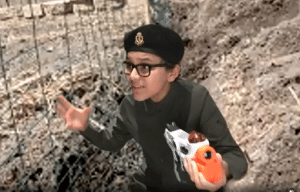 With the help of QE’s resident Theatre Director, Gavin Molloy, members of the Year 8 drama club learned, staged and filmed dramatic monologues from home .
With the help of QE’s resident Theatre Director, Gavin Molloy, members of the Year 8 drama club learned, staged and filmed dramatic monologues from home .
And, after weeks of preparation and practice, at the end of term, their highly varied work was revealed to classmates, staff and parents alike as the monologues went live.
Crispin Bonham-Carter, Assistant Head (Pupil Involvement) said: “The speeches were taken from a range of classic and modern texts by authors ranging from Charles Dickens to Michael Morpurgo. The boys went to great lengths creating costumes, props and backdrops in their own homes.”
The recorded Zoom videos were put together in an online showcase, which was watched in School by boys during form time and has now been published for parents on the School’s eQE online platform.
Fifteen boys took part in the showcase, which was split into two halves for the presentation on eQE.
Their selections drew on some of the best-known authors and stories from the history of English literature. Ash Iyer performed from Agatha Christie’s And Then There Were None; Soham Kale read from An Inspector Calls by J B Priestley; Simi Bloom picked one of Arthur Conan Doyle’s most famous stories, The Hound of the Baskervilles, and Adi Dhan chose Dickens’ Great Expectations.
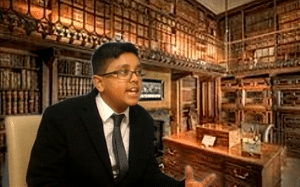 But more modern authors were certainly not forgotten: Aadam Aslan’s monologue was taken from Michael Morpurgo’s Private Peaceful. Keon Robert performed from The Class, by playwright and Game of Thrones actor Luke Barnes, while Karan Somani performed an excerpt from Roy Williams’ play about boxing and racism, Sucker Punch.
But more modern authors were certainly not forgotten: Aadam Aslan’s monologue was taken from Michael Morpurgo’s Private Peaceful. Keon Robert performed from The Class, by playwright and Game of Thrones actor Luke Barnes, while Karan Somani performed an excerpt from Roy Williams’ play about boxing and racism, Sucker Punch.
One boy, William Joanes, read from the play that was postponed, The Curious Incident of the Dog in the Night-Time, based on Mark Haddon’s novel of the same name.
With lockdown over, full-scale rehearsals to put on this award-winning play resumed towards the end of term. It will be staged in June as the 2021 School Play.

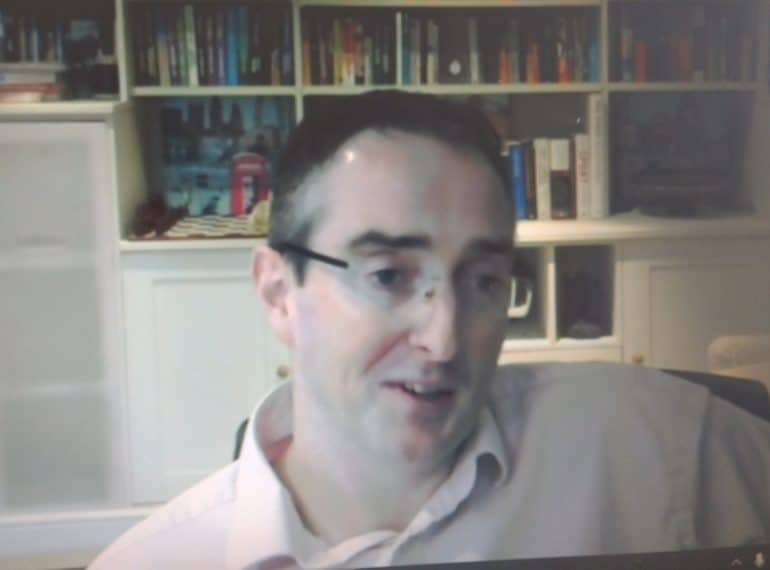
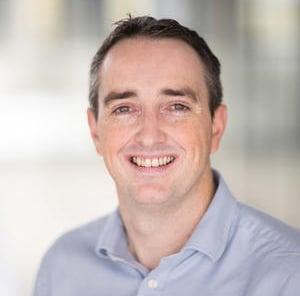 The speaker, Michael McMahon, Professor of Economics at the University of Oxford and Senior Research Fellow at St Hugh’s College, is a leading expert on communications in central banks. His interests also lie in monetary economics, fiscal policy, business cycles, and applied econometrics. He worked at the Bank of England for many years and now serves as a member of the Irish Fiscal Advisory Council.
The speaker, Michael McMahon, Professor of Economics at the University of Oxford and Senior Research Fellow at St Hugh’s College, is a leading expert on communications in central banks. His interests also lie in monetary economics, fiscal policy, business cycles, and applied econometrics. He worked at the Bank of England for many years and now serves as a member of the Irish Fiscal Advisory Council.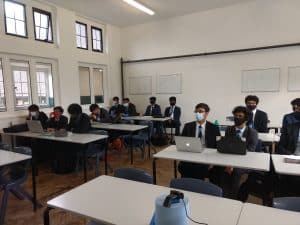 “They were particularly attentive to the portions of Professor McMahon’s lecture in which he laid emphasis on how the current economic situation will impact young people as they are thinking about their job prospects for the future.
“They were particularly attentive to the portions of Professor McMahon’s lecture in which he laid emphasis on how the current economic situation will impact young people as they are thinking about their job prospects for the future.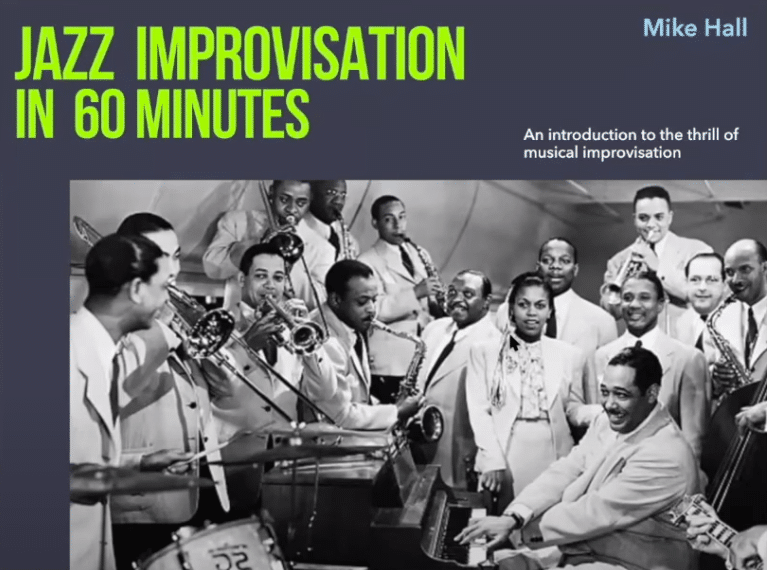
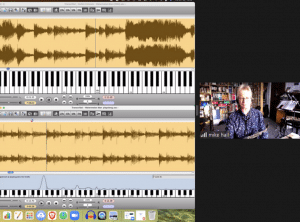 His hour-long, richly illustrated, online talk focused on examples of improvisation by two of the jazz greats, Herbie Hancock and Miles Davis.
His hour-long, richly illustrated, online talk focused on examples of improvisation by two of the jazz greats, Herbie Hancock and Miles Davis. Mike was Head of Jazz Studies at the Royal Northern College of Music for 20 years, during which time he directed well over 100 concerts with the RNCM Big Band. He still teaches at the RNCM and has also taught at many jazz summer schools and been a consultant and composer for the Associated Board of the Royal Schools of Music (ABRSM – a Music examinations board).
Mike was Head of Jazz Studies at the Royal Northern College of Music for 20 years, during which time he directed well over 100 concerts with the RNCM Big Band. He still teaches at the RNCM and has also taught at many jazz summer schools and been a consultant and composer for the Associated Board of the Royal Schools of Music (ABRSM – a Music examinations board).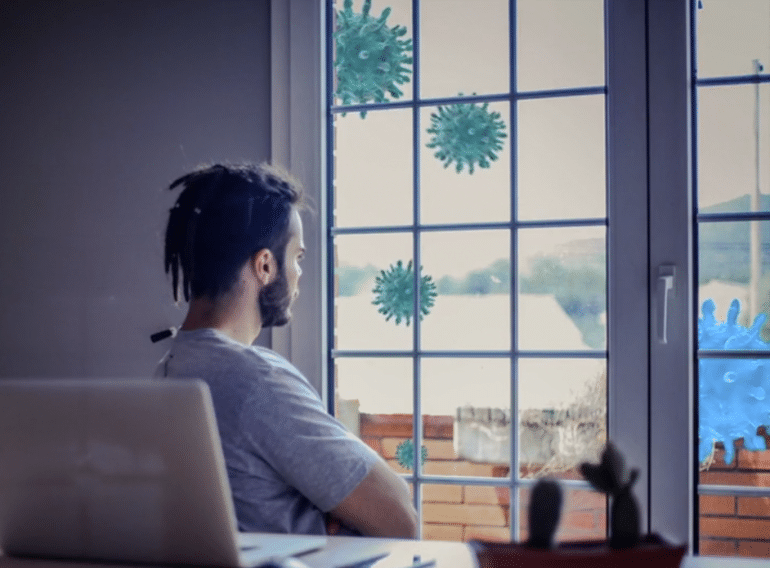
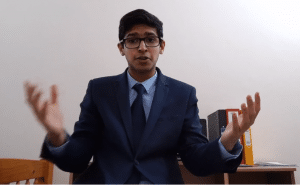 Abir Mohammed, Dhruv Syam and Ansh Jassra put together a polished three-minute film featuring footage from around the world on the competition theme of The changing workplace: same spaces, new realities. The 2020 competition, entitled Bank Camera, Action, challenged entrants to explore the effects of the coronavirus pandemic on the way we work, on jobs and on the economy.
Abir Mohammed, Dhruv Syam and Ansh Jassra put together a polished three-minute film featuring footage from around the world on the competition theme of The changing workplace: same spaces, new realities. The 2020 competition, entitled Bank Camera, Action, challenged entrants to explore the effects of the coronavirus pandemic on the way we work, on jobs and on the economy.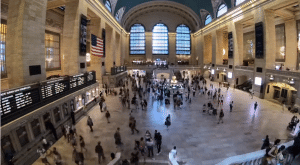 QE teacher of Economics Krishna Shah said: “I am extremely proud of the three of them and delighted that all their hard work in putting the film together has been rewarded.”
QE teacher of Economics Krishna Shah said: “I am extremely proud of the three of them and delighted that all their hard work in putting the film together has been rewarded.”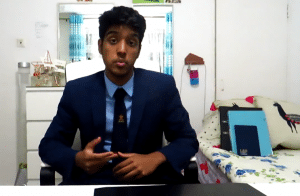 It considered the environmental benefits of reduced levels of commuting and outlined possible technological solutions to the difficulties in maintaining work-life balance that working from home often entails, such as using separate electronic devices for work and personal life and screen-time blocking apps.
It considered the environmental benefits of reduced levels of commuting and outlined possible technological solutions to the difficulties in maintaining work-life balance that working from home often entails, such as using separate electronic devices for work and personal life and screen-time blocking apps. “Ultimately, the question is not whether remote working is here to stay, but to what extent.
“Ultimately, the question is not whether remote working is here to stay, but to what extent.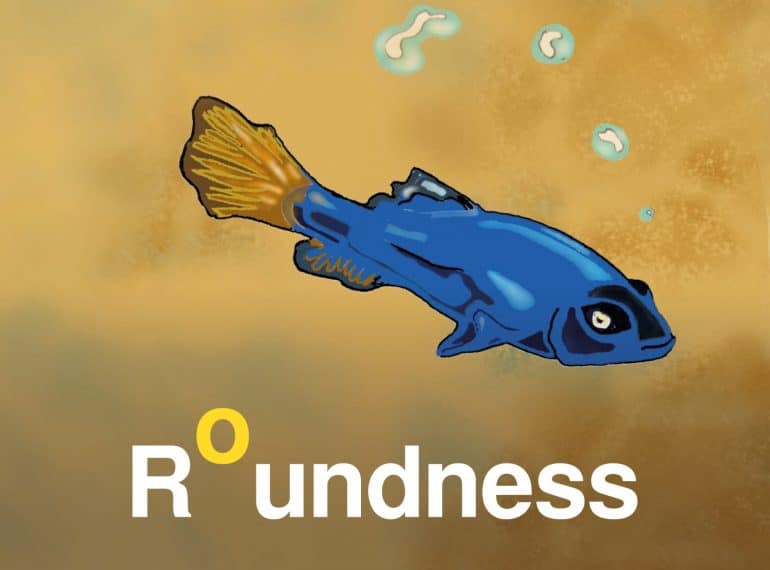
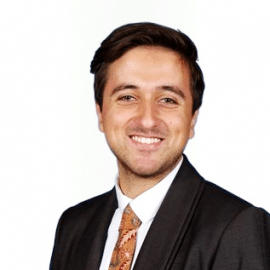 Podcaster Surya Bowyer, QE’s Head of Library Services, warns that we disregard the “interconnectedness of the world’s natural systems” at our peril in a 36-minute episode that features a variety of expert voices and spans the globe, from Egypt and Ethiopia to France and Spain, and from the Amazon to the US.
Podcaster Surya Bowyer, QE’s Head of Library Services, warns that we disregard the “interconnectedness of the world’s natural systems” at our peril in a 36-minute episode that features a variety of expert voices and spans the globe, from Egypt and Ethiopia to France and Spain, and from the Amazon to the US.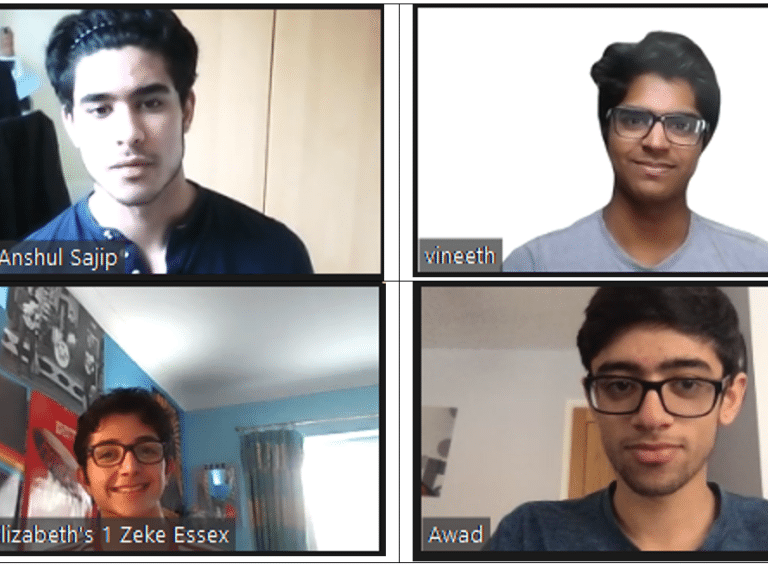
 QE’s Head of Languages, Nora Schlatte, was a member of the jury, and saw Vineeth and Awad in action. “Their research, poise and accuracy of language were amazing,” she said “Vineeth’s opening speech was described as ‘un modèle du genre’ [a model of its kind] and both boys responded very well to some challenging questions. Participating in something like this, especially remotely, is really daunting and they did brilliantly.”
QE’s Head of Languages, Nora Schlatte, was a member of the jury, and saw Vineeth and Awad in action. “Their research, poise and accuracy of language were amazing,” she said “Vineeth’s opening speech was described as ‘un modèle du genre’ [a model of its kind] and both boys responded very well to some challenging questions. Participating in something like this, especially remotely, is really daunting and they did brilliantly.”